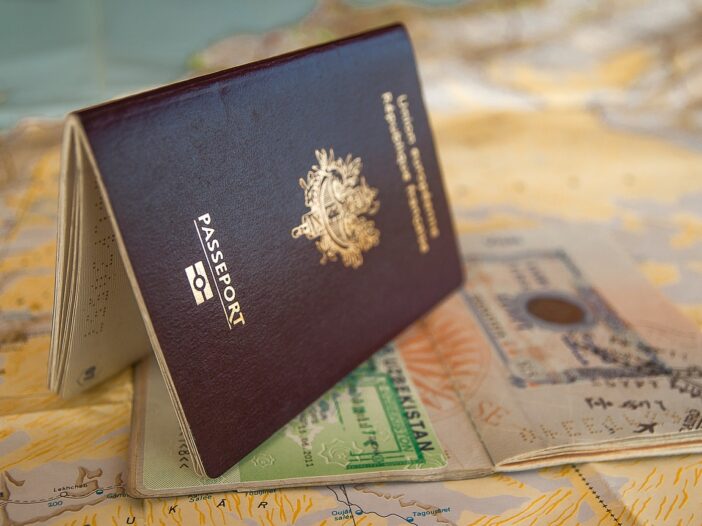
Decades before Daniel spent a night in the lions’ den, he was a teenager in Jerusalem, looking forward to the rest of his life. Little did he know how his life would abruptly change—even down to his name.
Daniel was in the first of three waves of Hebrews taken from Jerusalem to Babylon. Seven hundred miles from home, Daniel awaited slavery or worse. Yet Nebuchadnezzar had special plans for some of his captors.
Selecting Daniel and his friends was a left-handed compliment. Their physical appearance and agile minds garnered them three years of “training,” after which the king would assess them for his service (Daniel 1:5).
“Training” is a sanitized word for the friends’ immersive re-education in all things Chaldean (Babylonian). The goal? Systematically turn those bright, young Hebrews into Babylonian influencers who could break the captives’ identity, standards, and faith.
The first step was to give Daniel and his friends new names. All their Hebrew names pointed in some way to God. A pagan king who saw himself as divine would have none of that.
Daniel, whose name means “God is my judge,” became Belteshazzar, an effeminate name that means “wife of Bel, protect the king.” (Bel = Baal = Marduk, depending on where and when you lived.) Daniel’s friends, Mishael (“Who is like God?”), Azariah (“Yahweh, our help”), and Hananiah (“Yahweh is gracious”) became Shadrach, Mishach, and Abednego—names indicating subservience to the gods Aku and Nego.
Let that sink in. That would be like someone forcing a demonic name on you—and you hearing only that name when people addressed you—for the rest of your life.
What a head game.
That was just the start. Daniel and his friends were steeped in Chaldean language, literature, and the like … but also in “wisdom” including astrology, divination, sorcery, and occultic magic.
How would you like to read and recite that for three years?
The captive Hebrews couldn’t even huddle together to pray at night. They slept dormitory-style in a large room, with a eunuch stationed between every fourth bed.
How did Daniel remain true to God when the Babylonians made every effort to erase God from their minds and hearts?
Most important, how does Daniel’s experience relate to you and me today?
(1) You never know when you’ll face a trial.
Your best efforts can’t promise a smooth-sailing life. Trials are inevitable—but not insurmountable (Isaiah 41:13).
(2) Worrying about trials doesn’t prepare you for them.
Worry is rehearsal for how we think we’ll react to difficulties. Planning has merits but can lead to hypervigilance. Give God room to work in your life. Don’t rely on your limited ability to handle life’s curve balls (Proverbs 3:5).
(3) You can’t control the circumstances of a trial—only your response to it.
When we respond with integrity and lean into God’s strength during a trial (Psalm 46:1), it unleashes His infinite capacity to act on our behalf. In ways we rarely understand, He bends the trial’s outcome to His will.
(4) The only way to truly prepare for trials is to ground yourself in God’s Word.
Daniel’s faith in God was established long before he was hauled off to Babylon. He had godly parents, but Daniel had to settle I’ll-trust-in-God-no-matter-what on his own. We must do the same (Proverbs 3:5-6).
(5) God gives discernment during hardship, wrongdoing, and evil.
God blessed Daniel and his friends with clarity in the midst of heresy. When Nebuchadnezzar quizzed them at the end of their training, he found them superior in all ways to his best magicians and astrologers—who relied on tricks and slyness more than wisdom (Daniel 1:20). God still grants that discernment today.
(6) God never leaves you, even in trials—so don’t leave Him.
The Bible is full of God saying, “I will never leave you or forsake you.” When we need to hear it most, He’ll repeat Himself—just like He did when Joshua stepped into Moses’ shoes as leader of the Israelites (Joshua 1:5,9).
(7) Worldly conformity is a form of captivity.
Even when life isn’t the “normal” you want, God still says, “I created you to stand out” (Romans 12:2). At all times, but especially during tough times, ask God to show you the world through His eyes and how to act in a way that pleases Him.
(8) When the world demeans you, God exalts you.
The world wants to slap false names on you. Don’t believe it when the world speaks less of you than God does. You are His. Others can’t label you—only God can!
NOTE: This is the first installment in a series about Daniel.
Read the second one here.
Read the third one here.
Read the fourth one here.
Never miss a post!





Thanks, Lana, for sharing your insights. Keep on writing!
Bless you for saying that, Stan! Praying God will use my writing for His glory.